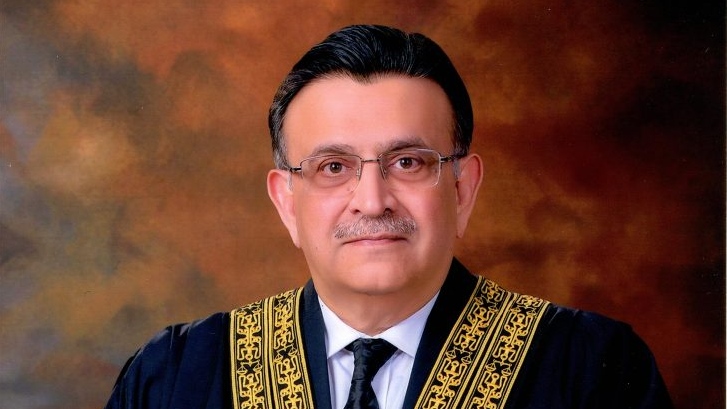
Elections in the Pakistani provinces of Punjab and Khyber Pakhtunkhwa (KP) will be held within 90 days, a Supreme Court tribunal ruled in a March 1 decision, The Dawn reported.
In a regular session, a five-judge panel chaired by Pakistan’s Chief Justice Umar Ata Bandial reportedly ruled by a vote of three to two.
“Parliamentary democracy is the hallmark of the Constitution. There can be no parliamentary democracy without a parliament or provincial assemblies… And there can be no parliament or provincial assemblies without the holding of general elections, as provided for, required and prescribed by the constitution and in accordance with it. – the agency cites the verdict of the Supreme Court in the case of delays in the procedures to organize elections in two provinces of Pakistan.
The Supreme Court of Pakistan also ruled that Pakistani President Arif Alvi’s appointment of an April 9 election date in the largest (by population) province of Punjab was legitimate, as the governor of the province, Muhammad Balig-ur-Rehman, did not sign the speaker’s motion to dissolve parliament, which was done automatically.
The Court announced that the President should fix the date of the elections in Punjab after consulting with the Election Commission (CEC) of Pakistan.
At the same time, in Khyber Pakhtunkhwa, the court declared the date set by the president invalid, as the governor signed the decision to dissolve the previous parliament there. Therefore, he should also fix the date of the new elections after consulting with the Pakistan CEC. The court also led the KP governor to believe that he was violating constitutional obligations by delaying the election date.
The decision also establishes that if the CEC for any reason does not comply with the 90-day period for holding elections, then it must set a new deadline as of “minimum possible deviation” than 90 days prescribed by the constitution of Pakistan.
Ultimately, the court ruled that the Pakistan CEC had no right to evade consultations with the president or governors of the provinces in which the elections were to be held.
“The federal government, among other things, is obliged to urgently provide the CEC with all the facilities, personnel and security that are required to hold the general elections. [в провинциях]“, the court said in its ruling.
The agency reports that, in turn, two judges who voted against the Supreme Court’s decision, in statements disagreeing with the decision, emphasized that the chief justice had no jurisdiction and grounds to consider the issue of elections, but added that the Provincial High Courts must accept decisions on similar election cases within 3 days.
Remember, the Supreme Court started considering the case of delays in holding elections in KP and Punjab on February 23 on the personal initiative (suo motu) of the Chief Justice of Pakistan. On February 28, the court ordered Pakistan’s ruling coalition and the opposition to meet to jointly set the dates for elections in those provinces, postponing the verdict in the case until March 1, when it was announced.
It should be noted that about 66% of the total population of Pakistan lives in KP and Punjab, therefore the winner of the elections in these provinces receives a significant advantage over the participation in the general elections of the federal parliament of Pakistan.
Source: Rossa Primavera
I am Michael Melvin, an experienced news writer with a passion for uncovering stories and bringing them to the public. I have been working in the news industry for over five years now, and my work has been published on multiple websites. As an author at 24 News Reporters, I cover world section of current events stories that are both informative and captivating to read.
